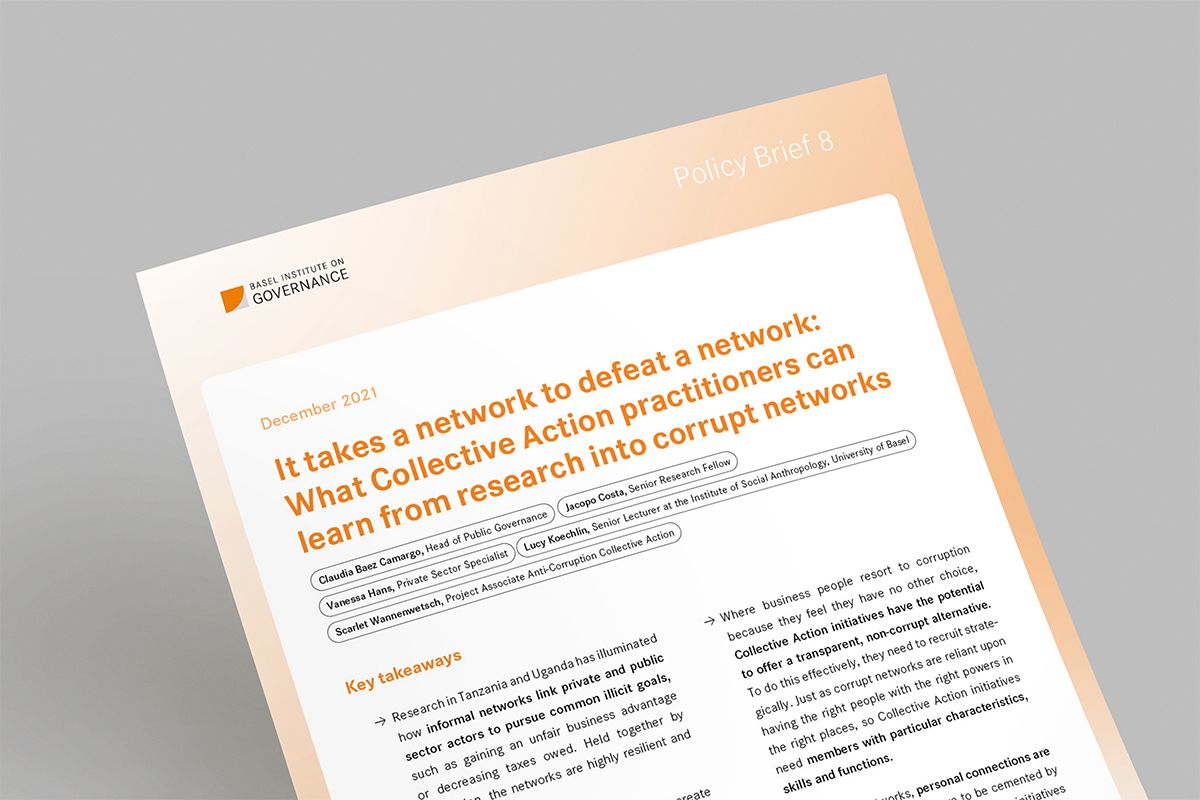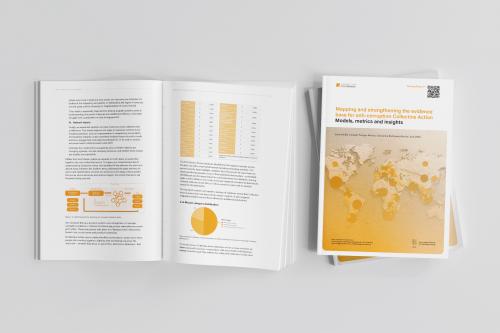New Policy Brief on how Collective Action initiatives can benefit from studying informal corrupt networks

What can we learn from studying corrupt informal networks linking the public and private sectors? A lot – including how to build stronger multi-stakeholder partnerships against corruption through Collective Action.
Our latest Policy Brief draws on our recent research in East Africa into how informal networks link private and public sector actors to pursue common illicit goals, such as gaining an unfair business advantage or decreasing taxes owed. Held together by corruption, the networks are highly resilient and effective.
Collective Action initiatives also typically create networks of private and public sector actors, but the goals here are positive and transparent. They may include raising standards of integrity and fair business in a specific industry sector or geographical area.
Understanding how corrupt networks function – and the problems they solve for the actors involved – could help Collective Action practitioners increase the effectiveness and resilience of their initiatives.
Key takeaways
The Policy Brief distils lessons for anti-corruption practitioners seeking to engage with the private sector through Collective Action, covering:
- solving problems as a way to create stronger incentives to engage
- offering transparent alternatives to those who feel they have little choice but to engage in corruption
- recruiting strategically to get the right people around the table
- building trust while maintaining credibility
- establishing effective reporting or whistleblowing mechanisms
The publication also explains why anti-corruption initiatives that focus purely on adding formal controls to high-risk processes, like audits and sanctions, can backfire. Initiatives that include monitoring project implementation and outcomes may be a smarter choice.
And the good news is that although informal networks can be resilient and effective, there may well be windows of opportunity to break them up. Examples include if a new government comes to power on an anti-corruption ticket or where there is strong pressure from citizens to increase transparency and accountability.
About the research
The publication is a collaboration between our Public Governance and Collective Action teams, with the support of Lucy Koechlin, Senior Lecturer at the University of Basel. The field research underpinning the Policy Brief was conducted under the Global Integrity Anti-Corruption Evidence (GI-ACE) Programme, funded with UK Aid from the British people.
Although the original field research took place in Tanzania and Uganda, the findings will be of relevance to Collective Action practitioners and others seeking to address corruption all over the world.



